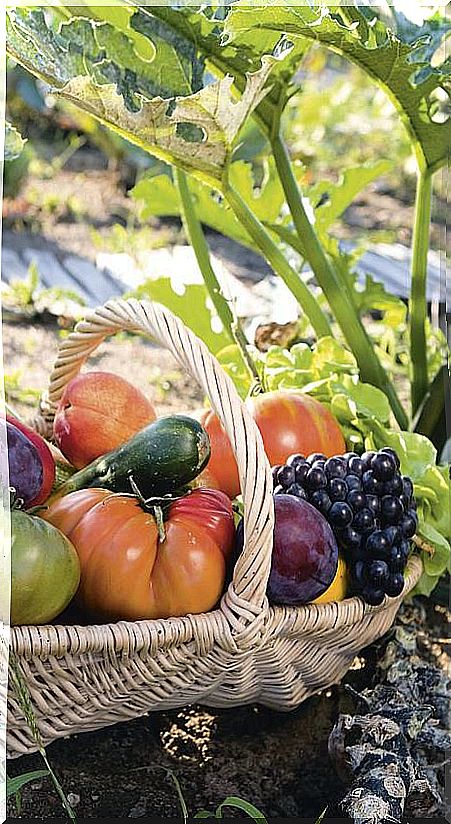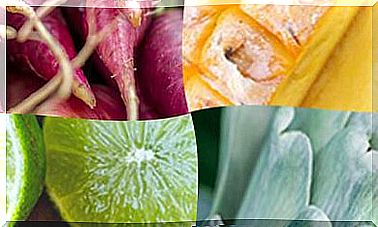17 Good Reasons To Eat Organic
Organic products are often more expensive, but thanks to their health and environmental benefits they have more and more advocates.

Spain is already among the 10 countries that consume the most organic products. For years it has been the leading producer of organic products in Europe and the sixth in the world.
Faced with the rise of organic products, doubts may arise about their true value. But studies on its health benefits increasingly give arguments to its defenders, who are also motivated by ethical, social and environmental reasons.
20 advantages and benefits of organic products
Organic production responds to the demand for natural and healthy food. According to a survey carried out for the Spanish government, the average consumer of organic products is young, with children, a higher than average education and is interested in the effect of food on their health. For this reason, look for foods with ecological endorsement and if possible produced in their environment.
He prefers them to the prepared ones or the well-known brand. However, there are still few people who know all the advantages of these foods.
1. They do not contain pesticides
It is the most obvious advantage. Conventional agriculture uses more than 400 pesticides, most of which are proven allergens, neurotoxic, and carcinogens. Half of the fruits and vegetables that are consumed contain some residue.
The health authorities ensure that the residues do not exceed safety limits, but according to the German State Office for Chemical and Veterinary Control an average of 0.4 mg of pesticides is ingested for every kilogram of fruit or vegetables.
Taking into account the cumulative and cross-over effects, more and more experts agree that in the long term there are no safe doses, no matter how low. Instead of synthetic pesticides, the organic farmer uses substances that already exist as such in nature (sulfur, copper sulfate …), as well as herbal preparations.
2. A more alive land
Along with the bags of pesticides, those of chemical fertilizers based on mineral compounds (nitrogen, phosphorus, potassium …) are used. The organic farmers, however, employ compost made from plant waste or manure.
With these organic fertilizers and by rotating crops and resting the soil, they promote the natural fertility of the land, in which many substances and microorganisms intervene. A Swiss study has shown that organic farm soil has more worms, arthropods, fungi and bacteria that help plants absorb more nutrients.
3. More vitamins and minerals
Organic fruits and vegetables have also been shown to be richer in nutrients.
- More vitamin C. A study funded by the European Union between 2004 and 2009 measured up to 90% more vitamin C in fruits and vegetables.
- More nutrients. In Spain, a team led by Lola Raigón, agronomist and professor of Soil Science and Agricultural Chemistry at the University of Valencia, found a higher nutritional concentration in organic vegetables: 25% more potassium in lettuce, 14% more calcium in stems fennel, 16% more iron in beans, 20% more vitamin C in orange juice and 10% more in green pepper.
These figures are explained by the differences in the fertilizers used, the composition of the soil and the not premature harvest. However, there are still experts who do not recognize it based on contradictory studies.
4. Great antioxidant power
Many vegetables provide chemicals that, without being nutrients, have healthy antioxidant effects. Most are flavonoids or organic acids that plants create to protect themselves from the sun or pests.
In the human body, these compounds act against free radicals, which can damage cells and promote the development of tumors.
5. A taste like before
One reason that leads to consuming organic products is to recover the flavor of yesteryear. “Tomatoes don’t taste like they used to,” they say to themselves. Organic ones, on the other hand, retain their aroma.
It is not magic: the use of chemical fertilizers increases the proportion of water in the food; in the organic ones the proportion is lower and, therefore, the aromatic agents are more concentrated. Lola Raigón’s studies confirm this: organic citrus fruits have 24% more essential oils, which also serve the plant as a defense.
On the other hand, organic farmers often choose local varieties adapted to the terrain or climate, rather than the hardier or fast-growing ones. And food, if purchased in season, is harvested ripe, so it does not go through the chamber.
6. A more varied diet
Vegetables that are not seen in supermarkets are often found at an organic produce stand : kohlrabi, purple potatoes, Jerusalem artichokes, wild salads … These foods enrich and brighten up the diet.
The variety is not on a whim or to attract attention, but a consequence of how you work on an organic farm. Instead of betting everything on one card (a plant that occupies large areas) a diversity of species and varieties is cultivated to reduce the risk of disastrous pests.
7. Eat fewer additives
The bio foods may contain only a few of the more than one thousand additives using food industry: additives based on natural extracts. On the other hand, the conventional food industry has an arsenal to improve the taste, appearance and texture of products, extend their shelf life and lower costs.
What might seem an advantage is not so much, since many additives are suspected of having negative effects on health, from allergic reactions and irritations to behavioral disorders such as hyperactivity in children.
8. Cleaner drinking water
In February 2013, in several towns in the region of La Ribera (Valencia) , the consumption of drinking water was prohibited when it was discovered that it was contaminated with excessive levels of pesticides. The same year, the Catalan Water Agency warned that the water that supplied 65 municipalities in the south of Catalonia was contaminated with nitrates.
Both news are a consequence of the misuse of pesticides and fertilizers on aquifers. Soils, plants and wild fauna are also affected. Organic production does not cause these problems.
9. Brake on climate change
Food production is responsible for 30% of CO2 emissions into the atmosphere (half is attributed to transport).
This impact can be reduced, because some foods cause more emissions than others. In addition, choosing organic products reduces the impact by a third, because organic farms emit less CO2 and fix more in the soil and vegetation.
10. Intelligence and foresight
To produce organic food, farmers need to fully understand how nature works and try to collaborate with it rather than fight it. To do this, they take into account both traditional knowledge and the latest scientific findings.
Instead of using a chemical insecticide, they create the conditions so that the pest does not appear. Other strategies include rotating crops, using well-adapted varieties, intercropping plants that repel harmful insects, or resorting to predatory insects and pheromone traps.
These measures are so effective that conventional farmers are gradually incorporating them, which is reducing the use of pesticides.
11. Gain transparency
Organic farmers must write down in a book what they do each day and receive inspections where samples are taken. In the event of any infringement, the certification is withdrawn.
12. A more caring world
By purchasing organic food, an alternative production model is supported, based on small and medium farms or cooperatives.
It is a model of sustainable development that works well in both rich and poor countries. In these, organic farming is often associated with “fair trade”, guaranteed with the Fair Trade and Hand in hand seals, which improves farmers’ income.
13. A balanced landscape
One can imagine a territory largely occupied by large monocultures and the rest abandoned or turned into a nature reserve.
In this model, agriculture is a thing of the great food industry and implies the practical disappearance of rural life. Or you can imagine a world where small and medium farmers, proud of their work, take care of their lands and give life to the villages.
Ecological farms are identified with this more harmonious way of relating to nature and which is reflected in the beauty of the landscape and biological diversity.
14. Create more work
In Spain, the number of workers in the organic agricultural sector increases by 20% every year, including recent crises. In times of crisis and dominated by international movements of capital and industries, organic farming can be one of the axes for sustainable alternative development.
15. Proximity and local development
The bio foods can be eaten away from their place of origin. In Sweden they take Spanish organic olive oil and here they drink Swedish oat milk. But people with ecological criteria feel more comfortable buying nearby products, since the environmental impact of transport is much lower.
This requirement can be met especially with seasonal fruits and vegetables. They can be found in organic stores and municipal markets, but many consumers organize themselves into cooperatives or groups that buy directly from the farmer.
16. Respect for animals
Animals lead a much more dignified life on an organic farm. And, on the other hand, the living conditions of the animal are reflected in the quality of the products, whether milk, eggs or meat, which may have a different chemical composition if the animal suffers stress, lacks movement or other factors.
17. Children’s health
Many people start organic eating when they have their first child, as their priority is to offer less contaminated and purer food.
They do well, because children’s bodies are much more vulnerable to toxins, especially those that affect the reproductive, nervous and immune systems. In fact, this vulnerability already exists in pregnancy, so future mothers should also consider it.
Couples who want to conceive also have reasons to eat organic : according to animal studies, fertile capacity increases between 30 and 200%.









